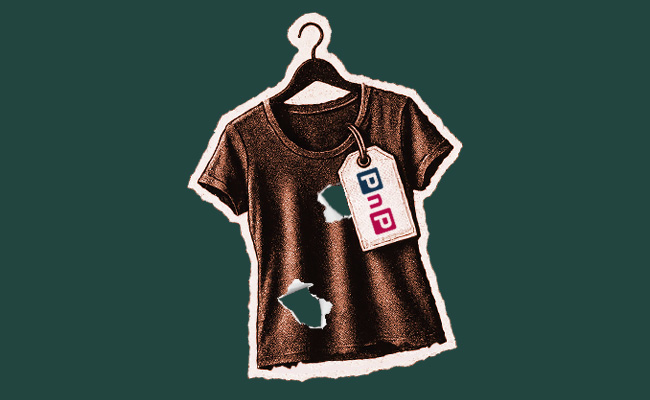The interesting thing about Blue Label Telecoms, says Flagship Asset Management’s Philip Short, “is how much it is hated”.
The disdain shown by large institutional buyers towards a stock that has had a chequered time since it listed on the JSE in 2007 means they have missed out on a cracker of a rally.
Blue Label has soared 400% since September 2023 and, if Short is to be believed, the potential for it to nearly double in value to R27bn from its current R15bn is real.
It is ironic that the company, founded in 2001 by brothers Mark and Brett Levy based on selling prepaid airtime, has found its redemption in Cell C, which was its worst-ever deal. Cell C was meant to be South Africa’s third mobile operator, but it lurched from disaster to disaster, racking up losses.
In 2017, Blue Label bought 45% of Cell C — but the hole only grew. Blue bailed it out, and a series of recent debt-for-equity swaps means it now owns 80% of Cell C’s equity, and 90% of its debt.
In the past year, Cell C has recaptured its mojo. Far from being a debt-stricken also-ran, by next year Cell C will have zero debt and will owe no tax for the next five to 10 years because of a huge assessed tax loss of R28bn. This, combined with the R2.1bn in earnings it made for the 2025 financial year, suggests the Levys’ big bet is coming up roses.
Now, Blue has proposed listing the rejuvenated Cell C on the JSE, sparking the huge rally in its shares. It is hard to overstate the magnitude of this turnaround – or the shift in sentiment. When Blue inked the deal, most people hated it. They argued Cell C would only ever be a cash drain given how far it was behind the two main incumbents, MTN and Vodacom. And the effect on Blue was catastrophic; the stock fell from R18 to just R2.90 by September 2023.
“It took us a long time right from the beginning of listing to get credibility and for the market to understand our story – which we felt was simple: take a digital product and distribute it to the country,” CEO Mark Levy tells Currency.
“There was nothing really comparable to it in the early days, and people found it difficult to understand. And finally, we convinced people we weren’t a telco and then we bought a telco,” he says, ruefully.
Levy admits that while Cell C was bought for solid reasons, “where we failed was in the execution”.
Rozendal Partners’ Paul Whitburn is more blunt. “It was an unmitigated disaster,” he says.
Whitburn has followed Blue Label since 2007, when Microsoft bought into the business – a stake it then sold back to Blue Label in 2011. “Like everybody else we thought: the third mobile operator never makes money and is just dead from the word go, and we exited [Blue], and I forgot about it. Then we set up Rozendal, and Blue was back at R3,” he says.
Then came the restructuring of Cell C. Whitburn says this was “overly complicated” but, in the end, it was also one of the best balance sheet restructurings he has seen in South Africa. “It’s very rare that bondholders accept 20c in the rand and the equity owner increases their stake in the asset [after the] recapitalisation. So that tells you how the Levy brothers negotiated the deal and played their hand,” he says.
The golden egg
What many of the Cell C haters had ignored was that the operator still had a trump card: spectrum, which it agreed to share with MTN and Vodacom in exchange for access to their tower networks. This multi-operator carrier network means that if you’re a Cell C customer, you might actually be running off MTN’s network. And if MTN’s network fell over for any reason, the backend would automatically switch to Vodacom. “I actually get the best network in South Africa at any given time if I’m on Cell C,” says Short.
He says this spectrum remains a premium asset: “If you’ve got spectrum you can pretty much command anything you want; you can put up antennas and networks for free.”
He describes 5G as the car, but spectrum as the highway. “If the highway is full, it doesn’t matter how fast your Ferrari is. You can have 5G, but if you don’t have spectrum, you’re stuffed. Cell C has the most spectrum per subscriber so they can afford to pool their spectrum and share it,” he says.
This overlooked switch — using other operators’ networks in exchange for spectrum — has been the fundamental overlooked change to Cell C’s business model, in which it no longer has to spend huge amounts of capital on infrastructure.
Whitburn says this economic principle is what critics miss. “They had the spectrum, they signed the deal with MTN, and now all of a sudden they’re a capital-light, growing business.”
And this transition has been mirrored in the boardroom too. In recent years, Cell C has poached a huge number of Vodacom executives — six of its 11 business heads are from Vodacom, including CEO Jorge Mendes. “They got the cream of the crop from Vodacom, so I think the tide has shifted and they are on the front foot for the first time in 20 years,” says Whitburn.
And then there’s Cell C’s tie-up with Capitec. In September 2022, the bank launched Capitec Connect, a mobile virtual network operator (MVNO) roaming off Cell C’s network.
“Capitec processes around 40% of all prepaid airtime in South Africa, so that means if you’re buying Vodacom airtime you’re likely buying it through an ATM or the Capitec app,” explains Short. “Capitec and Blue Label have a relationship going back 10-15 years. So all the value-added services like online betting, prepaid electricity – everything Capitec sells, Blue Label is facilitating.”
It’s a deal which underscores the shift in mobile payments from analogue to digital. Mark Levy tells Currency that in 2007, people used to buy physical scratch cards to get airtime for their calls. “Now, in theory, you can buy airtime with a bitcoin. You’re still buying airtime, but the modernisation of the distribution of it and the payments have changed significantly.”
The Midas effect
Blue Label will be hoping its association with Capitec rubs off. After all, the banking group’s sheer scale means it tends to have a Midas effect on those businesses it partners with.
“They’ve got 22-million banking clients and 12-million are users of their app and are buying airtime through Capitec,” says Short. “And they can say: ‘Because we own the channel, we can move people to our own network.’” In practice, this means that if you’re about to buy Vodacom airtime, Capitec can send you a pop-up alert offering to sell you Capitec Connect airtime at half the price.
The numbers are compelling. Cell C has 10-million subscribers, but Capitec Connect has grown to 2-million users in two years, adding 180,000 people every month. Every Capitec Connect subscriber becomes a Cell C subscriber, so the company is eyeing a 20% increase in subscribers by next year.
Short says the logic goes deeper. “Capitec is a R400bn company and they don’t really care too much about making money from airtime sales, but by lending better,” he says.
So, for instance, if you’re using Capitec Connect, the bank can tell whether your sim card is more than two metres away from your credit card if you make a transaction. “In other words, they know if someone has stolen your card – so that immediately eliminates a lot of fraud,” says Short. It also means your bank can see from your phone that you’re going somewhere at 7am, and coming back at 5pm, implying you’re employed. “So, judging from your movements, I can lend you money,” says Short.
But Cell C isn’t only partnering with Capitec. It has 13 MVNO relationships, including with Shoprite and FNB. Since those companies handle their own marketing and customer acquisition, the mobile operator makes higher margins on MVNO deals of about 40%.
As for Blue Label, one aspect of the business that fell by the wayside thanks to all Cell C’s debt was its treasury function.
Historically, Blue would go to Vodacom and buy airtime in bulk with a discount, get terms from Vodacom to pay for that airtime, and then sell it for cash. Blue would then sit on that cash for 90 days before repaying Vodacom — and as much as 45% of Blue’s total net income used to come from its treasury.
Whitburn says it could take up to three years to restore the treasury, but it’s unlikely to be as profitable as it once was. “Those margins have tightened-up, but there’s certainly upside there,” he says.
Listing ‘definitely’ on
Still, sceptics remain. One hedge fund manager tells Currency that he’s wary about the number of related-party transactions between Cell C and Blue Label, and the conflicts of interest this entailed. And others are convinced this is all hot air, and Cell C will never list on the JSE.
Mark Levy is adamant, however, that the listing is “definitely” going to happen. “We are treating it as a separate asset and will do what’s best for its balance sheet, and Blue Label’s balance sheet,” he says.
“The sum of the parts was greater than the whole, and we’ve been trying to tell people for a long time that nothing has fundamentally changed.”
So what would Cell C be worth? Short calculates, using a price-to-earnings multiple of 10, that it could be valued at R20bn. The core Blue Label operations, which generate net profit of R700m, could similarly be worth R7bn – which puts the whole group at a value of about R27bn, he says.
This is nearly double the R15bn at which Blue Label is currently valued on the JSE, suggesting much upside.
It’s not clear how much Blue Label will retain of Cell C, but it’s likely that shareholders will end up with shares in both firms, and a possible special dividend from the Cell C equity that Blue ends up selling.
Asked whether he’d back Blue or Cell C, Short says: “I’ll probably hold onto both.”
Top image: Rawpixel/Currency collage.
Sign up to Currency’s weekly newsletters to receive your own bulletin of weekday news and weekend treats. Register here.













